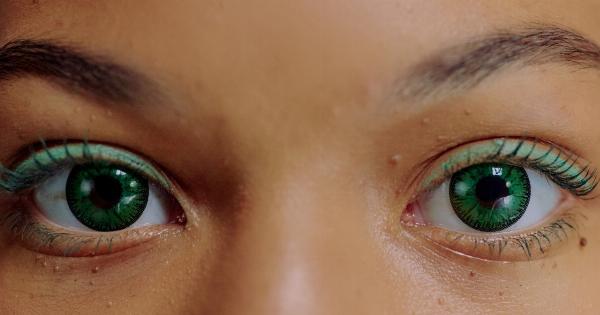Contact lenses are a popular choice for people who prefer not to wear glasses. They provide clear vision without obstructing any part of the face. However, there are certain situations when wearing contacts can be risky and uncomfortable.
This article aims to help you understand when you should avoid wearing contact lenses.
Eye Infections
One of the primary reasons why you should avoid wearing contact lenses is if you have an eye infection. Contact lenses can exacerbate the condition and also increase the risk of spreading the infection.
Common symptoms of eye infections include redness, itching, discharge, and swollen eyes. If you experience any of these symptoms, it’s best to consult your doctor before wearing contact lenses again.
Allergic Reactions
If you have allergies, some of the substances you come into contact with can trigger a reaction. Allergies can cause itchy and watery eyes, as well as irritation and swelling.
Wearing contact lenses can further aggravate the symptoms, leading to discomfort and sore eyes. If you have allergies, it’s best to avoid wearing contact lenses and opt for eyeglasses instead.
Post-operative Care
If you have had eye surgery, your doctor might recommend that you avoid wearing contact lenses during the recovery period. Eye surgery can cause stress and strain on the eyes, and wearing contacts can increase the risk of injury and infection.
It’s essential to follow your doctor’s orders and avoid contact lenses until your eyes have fully healed.
Swimming
Swimming is another situation where you should avoid wearing contact lenses. Water can be a breeding ground for bacteria, and swimming with contacts can increase the risk of eye infections.
Chlorine in pools can also cause irritation and damage to the lenses. If you must wear contacts while swimming, use waterproof goggles to protect your eyes.
Exposure to irritants
If you work in a dusty environment or are exposed to chemicals and other irritants, you should avoid wearing contact lenses. Irritants can get trapped in the lenses and cause discomfort and irritation. They can also cause infections and corneal abrasions.
It’s best to use eyeglasses or wear protective goggles when working in such an environment.
Dry eyes
If you have dry eyes, wearing contact lenses can be uncomfortable. Contact lenses require moisture to stay in position and provide clear vision. Dry eyes can make the lenses stick to the cornea, leading to discomfort and irritation.
If you have dry eyes, consult your doctor for the appropriate treatment and avoid wearing contact lenses.
Lens-related discomfort
Wearing contact lenses can cause discomfort and pain if the lenses are ill-fitting or worn for too long. They can also move around in the eye, leading to blurred vision and headaches.
If you experience any discomfort while wearing contact lenses, remove them immediately and consult your doctor. Your doctor might recommend a different type of lens or prescribe eye drops to alleviate the discomfort.
Pregnancy
If you are pregnant, your hormonal changes can affect your vision. Your eyes might become more sensitive and dry, making it uncomfortable to wear contact lenses.
It’s best to consult your doctor and avoid wearing contact lenses if you experience any discomfort or irritation.
Sleeping with lenses
Sleeping with contact lenses can cause irritation and increase the risk of infections. When you sleep with lenses, the oxygen flow to the cornea decreases, making it hard for the eyes to breathe. This can lead to corneal damage and infections.
It’s essential to remove the contact lenses before sleeping and follow the recommended wearing time.
Conclusion
Contact lenses can provide clear vision and a comfortable wearing experience, but it’s crucial to know when to avoid wearing them.
Eye infections, allergic reactions, post-operative care, swimming, exposure to irritants, dry eyes, lens-related discomfort, pregnancy, and sleeping with lenses are some of the situations when you should avoid wearing contact lenses. If you experience any discomfort or irritation while wearing contact lenses, remove them immediately and consult your doctor for the appropriate treatment.































